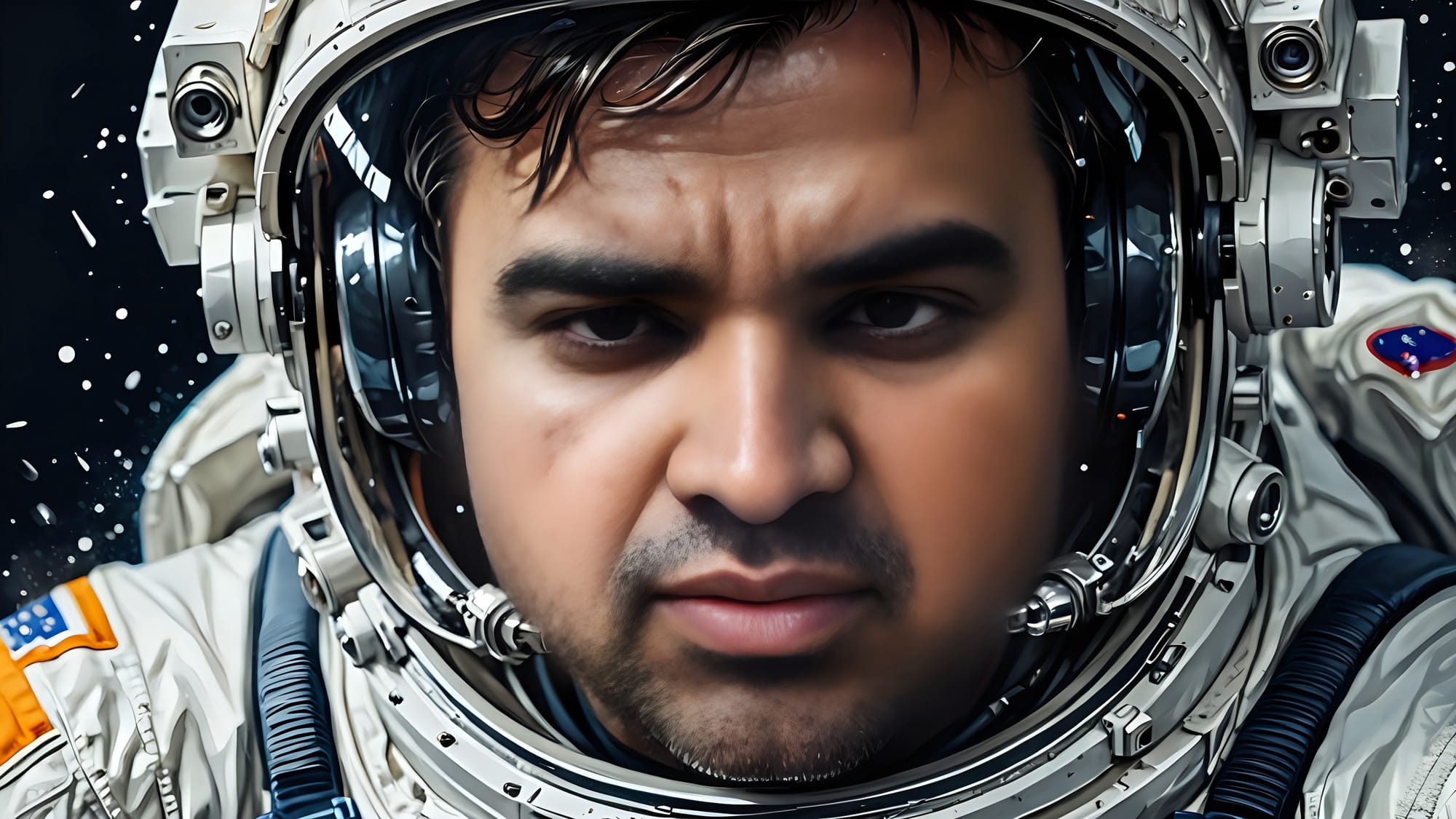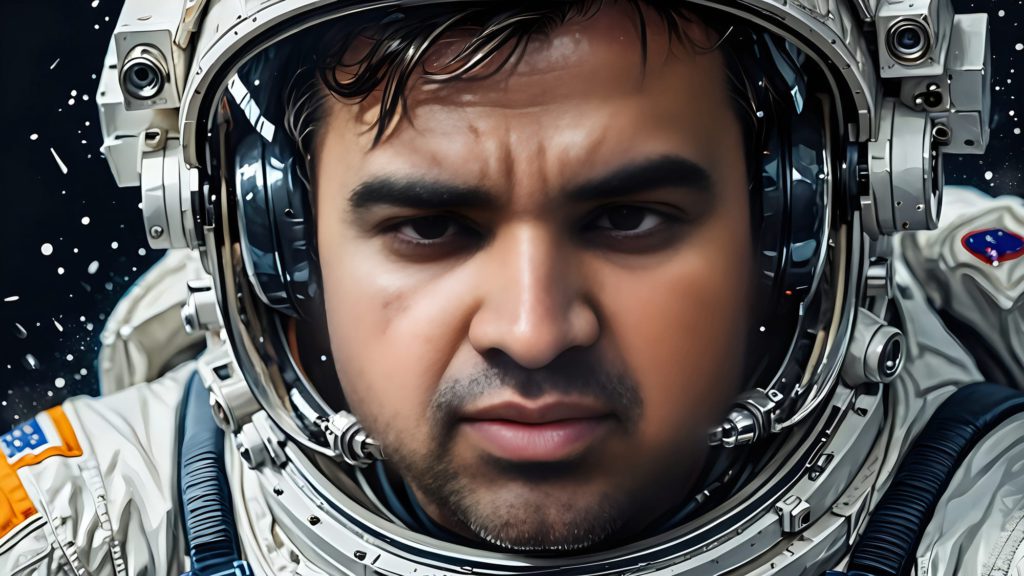
It starts with a single tear.
Not the kind you wipe away quietly during a movie. Not even the kind that comes with the sting of heartache. No – this one floats. It escapes the corner of your eye like a ghost set free, drifting in slow motion, a silver orb suspended in the breathless cradle of space.
Welcome to the future. Welcome to zero gravity tears.
I. The Crying Game
They don’t tell you this during astronaut training. They’ll teach you how to handle radiation, fix oxygen leaks, run diagnostic systems. But they never really prepare you for what it means to cry when up is down and down is nowhere.
Because in space, when your emotions well up, they don’t fall – they linger.
The first time it happens, you’re floating in your pod, just staring out at the big nothing. Earth is a marble behind you, stars are ice-pins in velvet, and silence is your only companion. You feel it—a burn at the corners of your eyes. Not because something went wrong. Just… because you’re small. Insignificant. Human.
And then the tears come.
But they don’t slide down your cheeks. They pool. They balloon. They hug your eyes like jellyfish, cold and stubborn, and they won’t leave unless you force them away.
A floating sorrow. A weightless ache.
II. Ghosts of Gravity
Gravity is a harsh mistress on Earth. She drags everything down—rain, blood, bones, burdens. In space, she lets go. She watches from a distance, smiling faintly, like a mother who’s finally let her child ride without training wheels.
But tears? Tears still exist.
Up here, they’re different. They don’t obey. They float, spin, shimmer like broken dreams made of saltwater and sadness. They form tiny glass spheres that reflect your face – twisted in surprise, or grief, or sometimes just wonder. And sometimes, they don’t stop. They cling to your skin, refusing to fall, refusing to move on.
Astronauts have tried to talk about it in briefings. But it’s hard to explain what it’s like to cry in a place where crying doesn’t work right. It’s hard to explain emotion when your tear ducts betray the physics of home.
III. The Quiet Madness
The silence of space is a thing with teeth.
It doesn’t scream – it whispers. Long, slow, creeping whispers that curl in your ears when the hum of the station fades. That’s when your mind goes walking where it shouldn’t – back to memories, to regrets, to people you left behind.
That’s when the tears come back.
And maybe that’s the real horror of it—not that tears float, but that there’s no gravity to anchor the feelings behind them. Emotions drift, aimless. Untethered. You begin to wonder if you’ll come back the same person you were. Or if you’re leaving part of yourself out here, scattered among the stars.
IV. Medical Mysteries and Floating Pain
Of course, NASA talks about fluid redistribution. About the way blood rises to your chest, about puffed faces and sinus pressure. They’ve studied what microgravity does to the body, the bones, the heart.
But tears? Tears are still a mystery.
Doctors on Earth say the surface tension causes them to glob, to stick around like uninvited guests. And you need to be careful – because a tear, if not dabbed away, can float into a console and short-circuit something vital. So there are rules for crying in space. Even grief, up here, comes with a manual.
Imagine that. Even sorrow has safety protocols now.
V. The Emotional Evolution
But maybe… just maybe… this is what evolution looks like. Not wings or scales or bionic arms – but the rewriting of emotion in real time.
A new form of crying for a new frontier.
Because as we reach for the stars, as we send people farther—to the Moon, to Mars, to the black nothing beyond – we’re not just bringing cargo and code. We’re bringing ourselves. Our joy, our madness, our music… and our tears.
And they will float. Forever, if we let them.
VI. The Last Human Thing
Maybe that’s why it matters.
Because tears, in all their weirdness and weightlessness, remind us that we’re still human – fragile, messy, hopeful. In the cold logic of machines and math, they are our rebellion. A small wet miracle.
A reminder that even in the vacuum of space… the heart still aches. Still hopes. Still bleeds.
And even though gravity can’t pull them down anymore, our tears still carry the weight of what we left behind – and the dreams of what lies ahead.
Welcome to the future. Where tears no longer fall.
They float.
And somehow, they matter even more.
Source: Read MoreÂ


